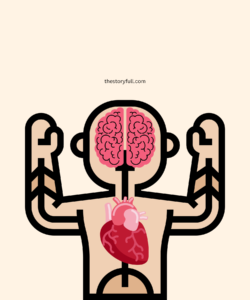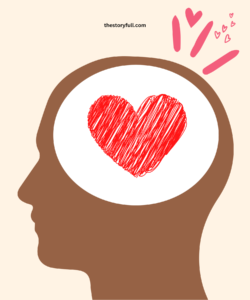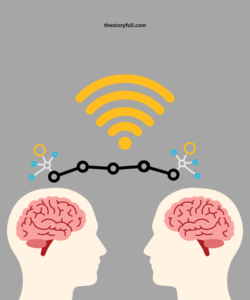12 Evidences From Science That Show You’re In Love
What relationship does love have with brain chemistry?

It’s possible that you’ve noticed signs that you’re in love. Can’t stop thinking about someone? When you should be working, do you have dreams about them? Do you have any plans for the future together? A few indications that you are in love include these irrational thoughts.
In fact, scientists know exactly what it means to “fall in love. “Researchers have found that the brain of someone who is in love looks very different from the brain of someone who is just in lust, and that the brain of someone who is in a committed, long-term relationship also looks different. The “falling in love” phase of the brain is distinct and well-defined, according to research conducted by Helen Fisher, an anthropologist at Rutgers University who is also a leading authority on the biological basis of love. period of time the following are 13 clues that you’re in love.

Yasmine S. Ali, MD, a medical writer who has won awards for her work, has written for a variety of media and genres. She is the President of LastSky Writing, LLC, and she has 25 years of experience writing, editing, and reviewing medical articles on a wide range of diseases and health topics.
Dr. Ali is certified as a subspecialist in cardiovascular disease and general internal medicine. She is an individual from the American School of Cardiology (FACC) and the American School of Doctors (FACP).
1. Consider This One To Be Special.

You begin to believe that your partner is unique when you fall in love. The inability to feel romantic love for another person is a sign of faith. An article published in the Archives of Sexual Behavior in 2017 states that monogamy raises central dopamine levels in the brain, a chemical linked to focus and attention.
2. Keeping An Optimistic Outlook

True lovers tend to focus on their loved one’s positive qualities and ignore their negative traits. The Journal of Personality and Social Psychology says that ideal partners tend to have better relationships.
In their dreams, lovers also focus on insignificant occurrences and things that bring back memories of loved ones. Falling in love prevents people from focusing on other information, according to a study that was published in the journal Motivation and Emotion 2013.
Central dopamine and central norepinephrine, a chemical associated with increased memory for new stimuli, are also thought to be responsible for this focused attention.
3. Stability In One’s Emotions

You are aware that falling in love frequently results in emotional and physical instability. You fluctuate between excitement, euphoria, increased energy, insomnia, loss of appetite, tremors, a racing heart, and rapid breathing when your relationship experiences even the slightest setback.
According to article that was published in the journal Philosophy, Psychiatry, and Psychology 2017. mood swings can coincide with drug addiction in extreme cases. In point of fact, the same regions of the brain that are triggered when an addict receives a “hit” are also activated when someone in love is shown pictures of their loved ones. Fisher says that falling in love is a kind of addiction that can lead to “withdrawal and relapse” when it is taken away from someone.
4. Attraction Interesting

Fisher’s research shows that being in a difficult situation with another person tends to make them more romantic. Because research demonstrates that dopamine-producing neurons in the midbrain become more productive when reward is delayed, this response may also be caused by central dopamine.
5. Intentional Thinking

Fisher says that lovers say they spend more than 85% of their waking hours thinking about their “love object.” A decrease in central serotonin levels in the brain, which was previously associated with Obsessive-Compulsive Disorder, can lead to compulsive thinking, as this form of OCD. (Serotonin reuptake inhibitors are used to treat compulsive disorder.)
Men who are in love have lower serotonin levels than men who are not in love, according to a study published in the Journal of Psychophysiology 2012. Women experience the opposite Men and women in love are found to spend approximately 65% of their waking hours thinking about their loved ones.
6. Mental Dependence

Possessiveness, jealousy, fear of rejection, and separation anxiety are all common symptoms of emotional dependence in a relationship. For instance, Fisher and her colleagues examined the brains of individuals who were either in love with someone they were still in love with after that person had rejected them.
Several brain regions were shown to be activated by functional magnetic resonance imaging (fMRI), including forebrain regions like the cingulate gyrus, which has been shown to be involved in cocaine craving. In 2010, the researchers published a paper in the Journal of Neurophysiology that suggested that “obsessions with love rejection may help explain activation of regions associated with cocaine addiction.”
7. Making Plans For The Future

Love can also be demonstrated by longing for a close relationship with a loved one, seeking opportunities to get closer, and envisioning a future together. Oxytocin levels rise when serotonin levels begin to return to normal, according to a Harvard University article. Building more serious relationships is linked to this neurotransmitter.
According to Lucy Brown, a neuroscientist at the Albert Einstein College of Medicine in New York, this desire to be with another person is comparable to our need for water and other necessities for survival.
When people look at their loved ones’ faces and think loving thoughts, functional MRI studies show that the primitive neural systems that underlie drive, reward, and euphoria are active in almost everyone. Brown stated to Live Science, “It puts romantic love in the company of survival systems, like those that make us hungry or thirsty.”
“Romantic love, in my opinion, is a component of the human reproductive strategy. It helps us survive by forming pair bonds. We were created to experience love’s magic and pass on to the other side.
8. A Feeling of Empathy

In most cases, people who are in love are willing to give up everything for the other person, feel the other person’s pain as if it were their own, and have strong empathy for their loved one.
Researchers in Fisher’s study discovered significant patterns in the brain activity of lovers. People in long-term romantic relationships had more active mirror neurons, which are linked to feelings of empathy.
9. Benefits In Combination

Someone may reorganize their daily priorities to align with their partner after falling in love. Another Fisher study, which was presented at the 2013 Being Human conference, found that people are attracted to their opposites, or at least their “brain chemistry” opposites. This is in contrast to some people’s attempts to be more than lovable.
For instance, his examination tracked down that individuals with alleged testosterone-prevailing characters (exceptionally scientific, serious, and genuinely limited) frequently pulled in accomplices whose characters are related with elevated degrees of estrogen and oxytocin — these people would in general be “compassionate, sustaining, dependable, both prosocial and thoughtful.” ,searching for identity and meaning,” Fisher stated in 2013.
10. Feelings Of Possession

Deeply in love people frequently feel a strong sexual desire for their partner, but there are also strong emotional attachments to them. When a partner is suspected of infidelity, sexual desire is linked to a desire for sexual exclusivity and extreme jealousy. Oxytocin is released during sexual activity, as the Indian Journal of Endocrinology and Metabolism states. As previously stated, this hormone fosters trust and social ties.
It is believed that this love evolved in such a way that the lover forces his partner to reject other suitors, ensuring that the couple’s courtship continues until a child is born. Fisher claims that it originated as a biological requirement that enabled romantic partners to “focus their mating energy on a specific individual.”
11. Desiring An Emotional Council

The lovers’ desire for emotional union takes precedence over their desire for sexual union. According to Fisher study that was published in the Archives of Sexual Behavior 2002, 6 percent of people who were in love disagreed with the statement, “Sex is the most important part of my relationship with [my partner],” which was the same percentage for both sexes.
12. Controls Are Known By Us

According to Fisher and her colleagues, those who claim to be “in love” frequently state that their passion is uncontrollable and involuntary.
In her 1979 book “Love and Limerance”, the late psychologist Dorothy Tennov asked 400 Connecticut men and women to respond to 200 statements about romantic love. Numerous members communicated a feeling of defenselessness, it was silly and unexpected to say that their fixation.
As indicated by Fisher, one member, a 50-year-old business chief, composed of his office sentiment: “I’m pushing toward the proposal that the fascination with Emily is a sort of natural, instinctual action that isn’t deliberate or sensible. It frustrates me. I’m trying as hard as I can to deny it, limit its effects, channel it like sex, enjoy it, and hell, even get her to respond! “The thought of her is an obsession, even though I know Emily and I can’t live together,” Fisher said in 2016 on the Nautilus network.
Having The Spark Lost

Unfortunately, falling in love does not always last forever. Fisher’s blog says that psychologists say that the early euphoric phase lasts no more than three years.It is a constant state that can either lead to a long-term relationship, which psychologists refer to as “attachment,” or it can break down and cause the relationship to end. The “love” phase typically lasts longer if the partners are unable to see each other on a regular basis due to social or physical barriers, such as if the relationship is long-distance.




